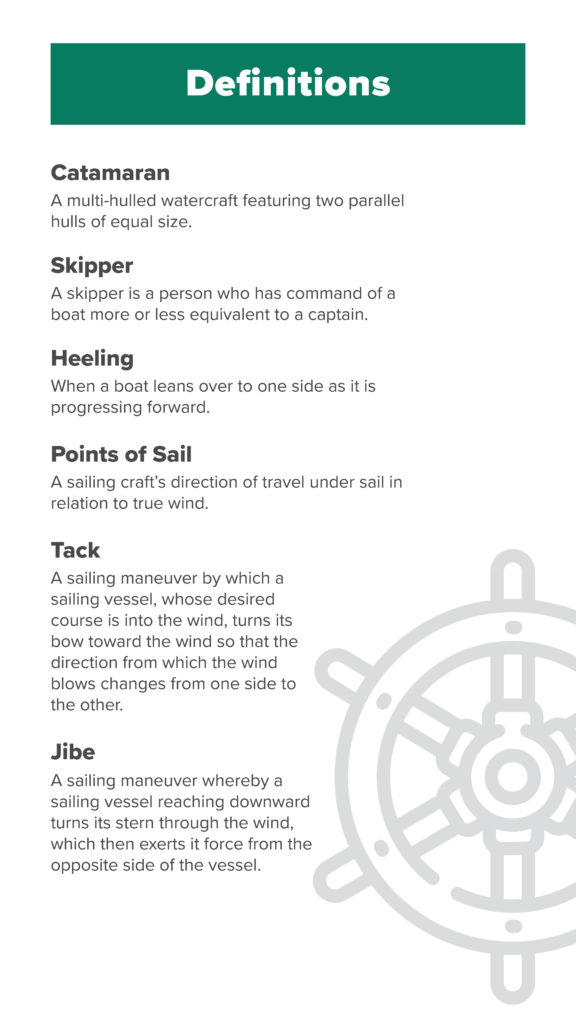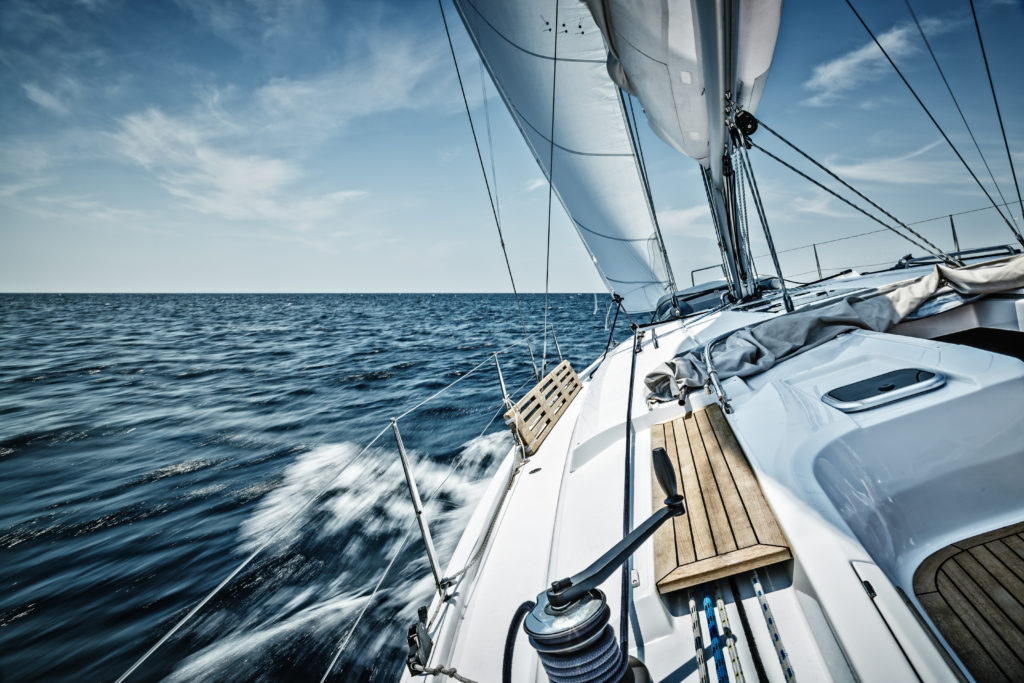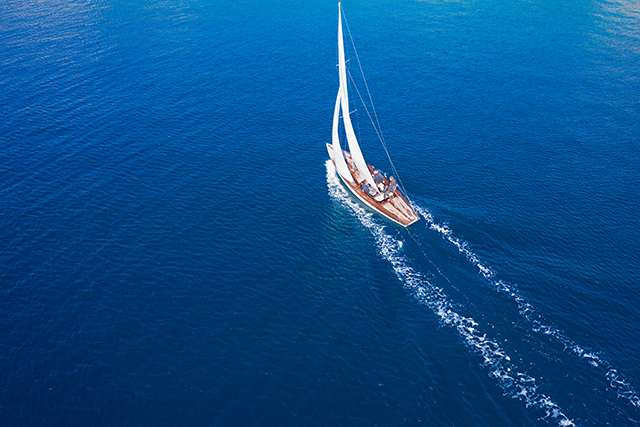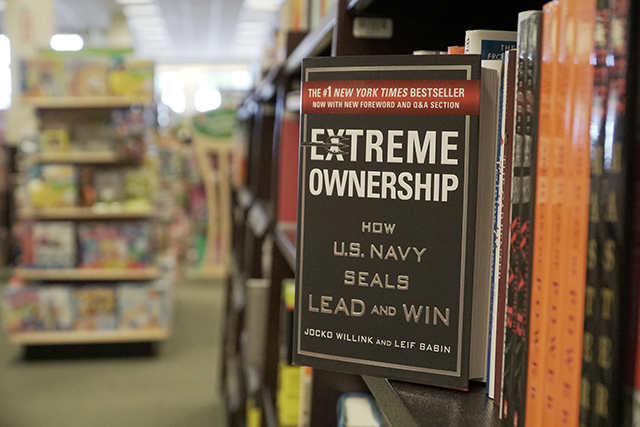We’ve all been there: we see or hear of an awe-inspiring ability and wonder if it’s something that we can accomplish ourselves. From dancing to swimming, sky diving and flying, it’s natural to feel a pull to explore more of what life has to offer.
But moments later, we open a mental tab and come up with possible reasons for why we can’t or shouldn’t pursue it. It’s too expensive, it will take too long to learn, I don’t have experience with this nor does anyone I know, how will I possibly catch up to someone who has been doing this since they were a child? And last but not least…what if I fail.
For me, this awe-inspiring ability was the art and science of sailing.
My friend Andrea introduced me to sailing and invited me to a team barbecue. Ten chicken wings later, she asked me if I was ready for a quick sail on the river. I stepped onto the wrong part of the small competition sail boat and it capsized right at the dock, taking me with it in front of her teammates: a great start to this rewarding sport!
A few years later, my father in-law came across a sailing channel on YouTube called La Vagabonde. The channel features a young, goofy, and charismatic Australian couple that travels the globe on a sail boat. Their lifestyle inspired my father in-law, my wife, and I to learn more about sailing and how to enjoy it for days and weeks at a time.
Learning the ropes
Our interest in sailing piqued, after two years with minimal experience under our belts, we decided to charter a 42’ Catamaran boat with a skipper in the British Virgin Islands. This wasn’t the typical vacation of relaxation: we made it our goal to gain the skills necessary to sail our vessel without a skipper in the future. Out on the water, we were finally able to deepen our understanding and expand our skills to sail, dock, and anchor comfortably.
Last year, we decided to take a series of sailing courses and get certified. During the training period, we were blessed with generous amounts of consistent winds, which also meant more heeling. Our instructor would continuously quiz us on the various points of sail, on whether our sails were trimmed right, if we had too fast or slow of a tack or jibe, and on our surroundings by creating hypothetical scenarios with respective courses of action. Think a mild, friendly version of Hell’s Kitchen. Gordon Ramsey would have been proud of our instructor. The final stage of our class was more relaxed as we learned about Catamarans and how they behave differently compared to a conventional monohull.

Grappling with fear
Going into a new hobby can be daunting. When it came to sailing, I started second guessing myself. “What if after all this investing I don’t like it? What if I don’t make a good skipper and get in high stress scenarios and capsize? What if I wreck the boat and make it on the local news, or even worse, put loved ones in life-threatening situations?”
We sometimes let our fears run wild and don’t realize that some of those well thought out scenarios, put in audit terms, have a low to moderate inherent risk consisting of rare to infrequent likelihood with a low to moderate impact. And you guessed it, in high inherent risk cases, with the addition of good decision making/ functioning controls, we can lower the risk of material catastrophe. For instance, once I learned of the sheer force it takes to capsize a monohull and the likelihood of that happening, plus my various preventative controls to avoid such a threat, I was able to scratch this fear off my list.
And it is absolutely okay to fail at something you are learning. It is okay if you tried something and it turns out it is not for you. It doesn’t change who you are. An open and positive mindset that allows for mistakes while you learn will enable you to loosen up, be humble in your approach, and ask good questions.
Every time you start doubting yourself, write down what you have accomplished so far. We often underestimate everything that we have learned up to the point of plateau and compare our current state to someone that may have had many more hours of practice. By writing your accomplishments down, you will remind yourself of how far you’ve come and how much potential you have.
Don’t be afraid
Write down your potential fears and analyze their likelihood, their impact, and how you can mitigate some of them. Do research upfront and start watching tutorials. If something seems too large, too expensive, too time consuming, too out there, see if you can bite a small piece off first. No one looks at a whole cake and decides not to eat it because they can’t eat it in one sitting. We eat it one piece a day over a week and before we know it, the whole cake is gone. Then we go make more cake.
Sailing was no different for my family and I. Before we committed to this expensive, risky endeavor, we signed up for a two hour exploratory lesson. After that lesson, we decided to take a class and practice in a small boat before we took further lessons. It was only this past holiday that we felt comfortable enough sailing out of the San Diego bay on our 32’ monohull rental into the open wave ridden Pacific Ocean.

Courage to step outside of your comfort zone
Sailing, for me, took courage. It is human nature to want to stick to what you know best, whether it’s a sport, hobby or profession, because we are confident we can execute it with minimal errors. Learning a new sport or skill can demand a different side of your personality and make you lose confidence with each passing attempt as errors rack up. It takes courage to try to learn something new until you begin to master it.
Without patience and perseverance, you are not giving yourself a fair chance to “perfect” this new task.
Being a skipper requires leadership and accountability. As a skipper, you are in charge of the boat and carry the responsibility of keeping your passengers on board safe. It will be your task to lead your crew, plan the trips, and create contingency plans and responses in case of emergencies.
Looking back, I most certainly do not regret this journey I embarked on. One of my favorite moments occurs when you shut the engines off and just ride the waves and wind with nothing but the waves and an occasional bird for company. Ultimately, I learned that sailing is an activity you make serve you. It is a competitive sport for some, a leisure outing for others (like myself), or a daunting gauntlet for the few brave sailors out there circumnavigating the globe. Whatever your new hobby is, whatever you choose to pursue, I believe that you will muster the courage to tackle it with both hands, one step at a time. There is nothing worse than not having tried at all.









